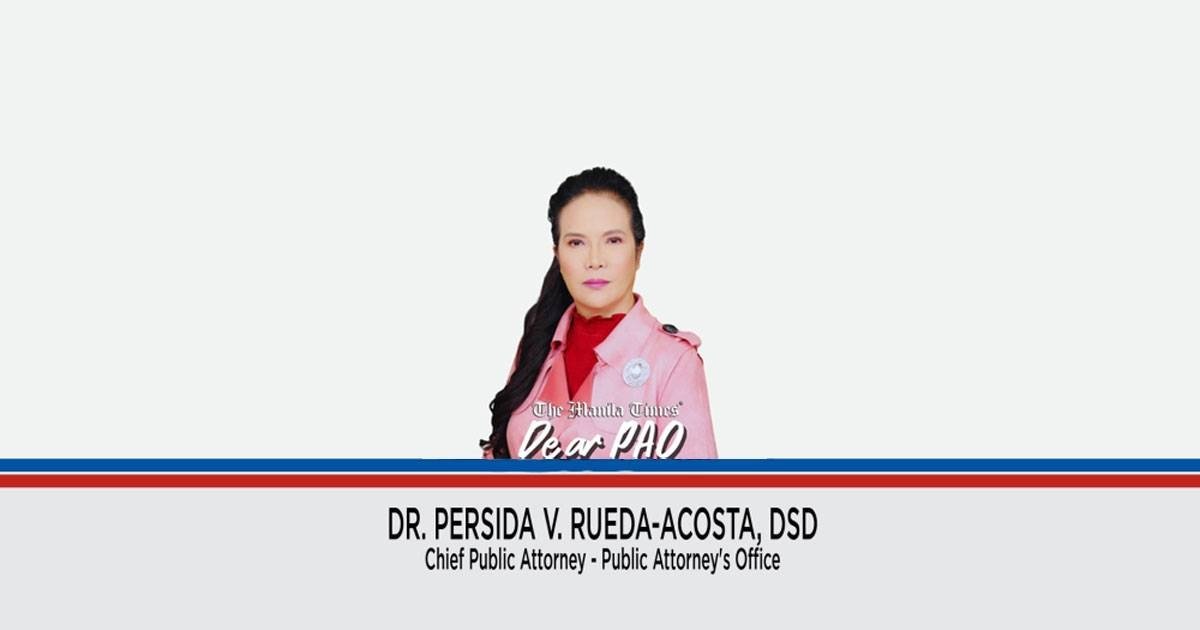
Dear PAO,
My sister, an overseas Filipino worker, is planning to build a resort on her property. She is aware of the various environmental regulations and permits we need to secure. One important requirement relayed to us is the Environmental Compliance Certificate (ECC), which we are willing to comply. Since my sister will be investing her hard-earned money into this project, she is eager to start accepting clients as soon as possible to recover her investment quickly. She asks whether the resort can start operating immediately once the ECC is issued.
Lonte
Dear Lonte,
The requirement of an Environmental Compliance Certificate (ECC) for a certain project is specifically provided under Section 4 of Presidential Decree 1586, which provides:
“The President of the Philippines may, on his own initiative or upon recommendation of the National Environmental Protection Council, by proclamation declare certain projects, undertakings or areas in the country as environmentally critical. No person, partnership or corporation shall undertake or operate any such declared environmentally critical project or area without first securing an Environmental Compliance Certificate issued by the President or his duly authorized representative. xxx.”
There is a need to balance socio-economic development and environmental protection; hence, the project proponent has to conduct studies required by the Department of Environment and Natural Resources-Environmental Management Bureau (DENR-EMB) depending on the classification of the project. One purpose of such study or assessment is to determine the negative impact of the project on the environment. A positive determination would result in the issuance of an environmental compliance certificate (ECC).
Environmental Impact Assessment (EIA) is the process that involves evaluating and predicting the likely impacts of a project (including cumulative impacts) on the environment during construction, commissioning, operation and abandonment. It also includes designing appropriate preventive, mitigating and enhancement measures addressing these consequences to protect the environment and the community’s welfare (Glossary, Revised Procedural Manual for DAO 03-30 [DENR Administrative Order 30 Series of 2003])
Assuming for purposes of discussion, that the environmental compliance certificate is required and was issued. Such certificate should not be construed as a permit to operate because there are requirements set by other government agencies that you need to comply with. This finds support in the case of Villar vs. Alltech Contractor’s Inc., et al., GR 208702, May 11, 2021, where the Supreme Court speaking, through Associate Justice Rosmari Carandang, stated that:
“It must be understood that an ECC is not a permit to implement a project Paragraph (d), Section 3 of the DAO No. 2003-30 defined ECC as: d. Environmental Compliance Certificate (ECC)-document issued by the DENR/EMB after a positive review of an ECC application, certifying that based on the representations of the proponent, the proposed project or undertaking will not cause significant negative environmental impact. The ECC also certifies that the proponent has complied with all the requirements of the EIS System and has committed to implement its approved Environmental Management Plan. The ECC contains specific measures and conditions that the project proponent has to undertake before and during the operation of a project, and in some cases, during the project’s abandonment phase to mitigate identified environmental impacts.
“Clearly, an ECC does not authorize the implementation of the proposed project. It is a planning tool that imposes restrictions that the proponent must diligently observe and duties that it must undertake to ensure that the right to a balanced and healthful ecology is protected. The proponent is expected to secure the pertinent permits and clearances from all concerned government agencies, such as those listed in Annex “B” of the ECC issued to Alltech, prior to the implementation of the project. The proponent will have to ensure compliance with all the conditions and requirements outlined in the ECC before it may commence the implementation of the proposed project.”
Applying the afore-cited decision in your situation, the issuance of an environmental compliance is the result of the positive review of the application, based on the representations of the proponent, that the proposed project will not cause significant negative environmental impact. It contains specific measures and conditions that has to be complied with before and during the operation of the project, but it cannot be construed as a permit to operate because the proponent must still secure the necessary permits and clearances from all concerned government agencies prior to the implementation of the proposed project.
We hope that we were able to answer your queries. This advice is based solely on the facts you have narrated and our appreciation of the same. Our opinion may vary when other facts are changed or elaborated.
Editor’s note: Dear PAO is a daily column of the Public Attorney’s Office. Questions for Chief Acosta may be sent to [email protected]







